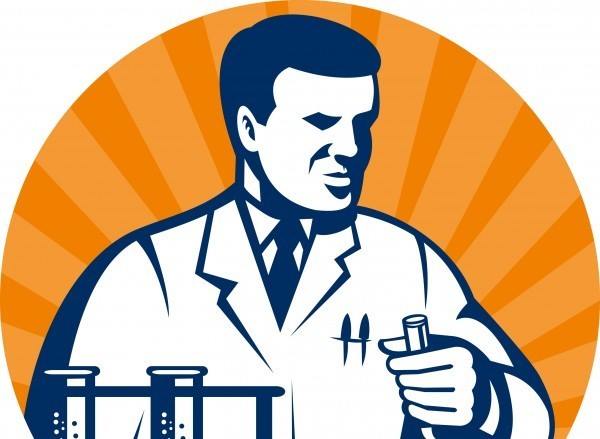Evidence Based Medicine.
Words we hear quite a bit, especially when it comes to alternative approaches to healing and wellness. In fact, this term embodies the notion that a method of treatment needs to have “scientific muster” for consideration.
However what does the term “evidence” really mean in this context?
After all the notion of evidence-based medicine is not a new idea. The lively conversation about this in the medical community really began in the mid-90s.
(Click on the link for a brief article by Dr. David L Sackett in the January 13, 1996 issue of the British Medical Journal. Dr. Sackett is one of the leading writers and educators about evidence-based medicine. ARTICLE LINK
When you hear evidence-based medicine discussed in the popular media, including media physicians, the definition of evidence is dumbed down. From these sources you would think that the only acceptable evidence for a physician to use in making clinical decisions is found in the peer-reviewed literature.
This is not and has never been the definition of evidence in evidence-based medicine.
Physicians are expected to base their clinical practice on:
- the evidence learned from their education
- the evidence gained from their clinical experience
- and the evidence found from relevant medical and scientific literature.
As Dr. Sackett notes,
“Good doctors use both individual clinical expertise and the best available external evidence, and neither alone is enough. Without clinical expertise, practice risks becoming tyrannized by evidence, for even excellent external evidence may be inapplicable to or inappropriate for an individual patient.”
You benefit when your clinician uses all of the evidence available to them when working with you. If I may, let me offer a few examples of this.
Example #1 – Starting with Diet and Lifestyle, rather than drugs:
 I know from my clinical experience that working with someone to change their diet and lifestyle can improve and even reverse high blood pressure. I know from my clinical experience that the unwanted effects from the drugs used to treat hypertension can be very debilitating in some people. So, based on all of the evidence available to me, I choose to begin the treatment of mild hypertension with changes to diet and lifestyle, turning to pharmacy only when these safer interventions have not worked.
I know from my clinical experience that working with someone to change their diet and lifestyle can improve and even reverse high blood pressure. I know from my clinical experience that the unwanted effects from the drugs used to treat hypertension can be very debilitating in some people. So, based on all of the evidence available to me, I choose to begin the treatment of mild hypertension with changes to diet and lifestyle, turning to pharmacy only when these safer interventions have not worked.
Example #2 – Not all treatments hold the results you think they do:
Based on the evidence from medical literature and from my clinical experience, I am aware that percutaneous coronary interventions (putting a balloon or a stent in a blocked artery in the heart) has no survival advantage. This means that people who undergo these expensive interventions do not live longer or even as long as people treated with changes to their diet, lifestyle and appropriate use of pharmacy.
From the evidence available to me, I do everything with my clients to prevent coronary artery disease as the main work with them. Should they end up in an emergency room in the middle of a heart attack, the best treatment that medicine has to offer will quickly open a blocked artery. In this scenario that is the true outcome of the treatment. Adding years to their life has little to do with the procedure.
Example #3 – Do you know where your research comes from?:
As a final example, I know from my medical education, and from the relevant medical literature, that vitamin E is a valuable supplement for human health. I also know that synthetic vitamin E can actually be harmful. When I then read a single paper reporting a study using synthetic vitamin E, and that concludes that vitamin E might be harmful, I ignore that study. I also ask myself, “how did that ever come to be published in a peer-reviewed journal?”
But they do. In fact it is not uncommon for that one study to “get legs”, as you might say. Soon it is quoted in other studies and suddenly Vitamin E is harmful.
Just like that.
 We saw this a few years ago regarding the providing of bereavement support to communities. A poorly conducted study showed that for one group studied, bereavement support did not help. This study was then taken and used to support another article from someone who thought bereavement support unhelpful. This became quoted again and again until it appeared that there was “significant” evidence to prove this issue. Suddenly bereavement support became presented as “dangerous”.
We saw this a few years ago regarding the providing of bereavement support to communities. A poorly conducted study showed that for one group studied, bereavement support did not help. This study was then taken and used to support another article from someone who thought bereavement support unhelpful. This became quoted again and again until it appeared that there was “significant” evidence to prove this issue. Suddenly bereavement support became presented as “dangerous”.
From here a somewhat aggressive campaign began advocating to limit the providing of bereavement support for people through hospice programs and other means. It was clearly ineffective and so resources should go to something else.
Terrible idea, by the way.
Thankfully Dr. Dale Larson, a professor in the Department of Counseling Psychology at Santa Clara University, challenged this. He felt something seriously wrong with the articles being presented to defend this negative view.
In his research he found that in fact it was this one questionable study at the root of it all. He spent considerable energy breaking this down to discover the answer. Plus it took time to reverse the damage, which still exists. As a result some people did not receive the best support possible because bereavement programs around the country were questioned.
I offer this as a reminder that a crucial piece in utilizing peer-reviewed articles comes in checking out the sources of the article. If you trust your doctor to do this, great. However, taking the time as well proves to be an excellent thing to do for yourself. With the volume of information out there, taking the time to dig deeper serves you well in the end.
As you seek health, remember that not all treatments are created equal. The vast majority of the medical literature now reports on studies involving various pharmaceutical agents. Since the years of President Reagan, medical research became a task relegated to private industry.
The pharmaceutical industry has the resources to carry out this research. It is appropriate, and essential, that they do extensive research on the pharmaceuticals they sell. Pharmaceuticals can have many unwanted effects, and research proving the safety and effectiveness of drugs is important before they are put on the market.
However, if an intervention is inherently safe, extensive research is not as important. If I know from my long clinical experience, and the long clinical experience of other physicians, that having a client eliminate sugar from their diet generally brings great rewards for their health, I recommend it. In this case the evidence from clinical experience is enough.
For a PDF of the article by Dr. Sackett just click HERE.
Let us know what evidence you use in making decisions about your health. Just leave a comment below and share your insights. Your wisdom is important.
Until next time, take good care.
And as always – To Your Health.

